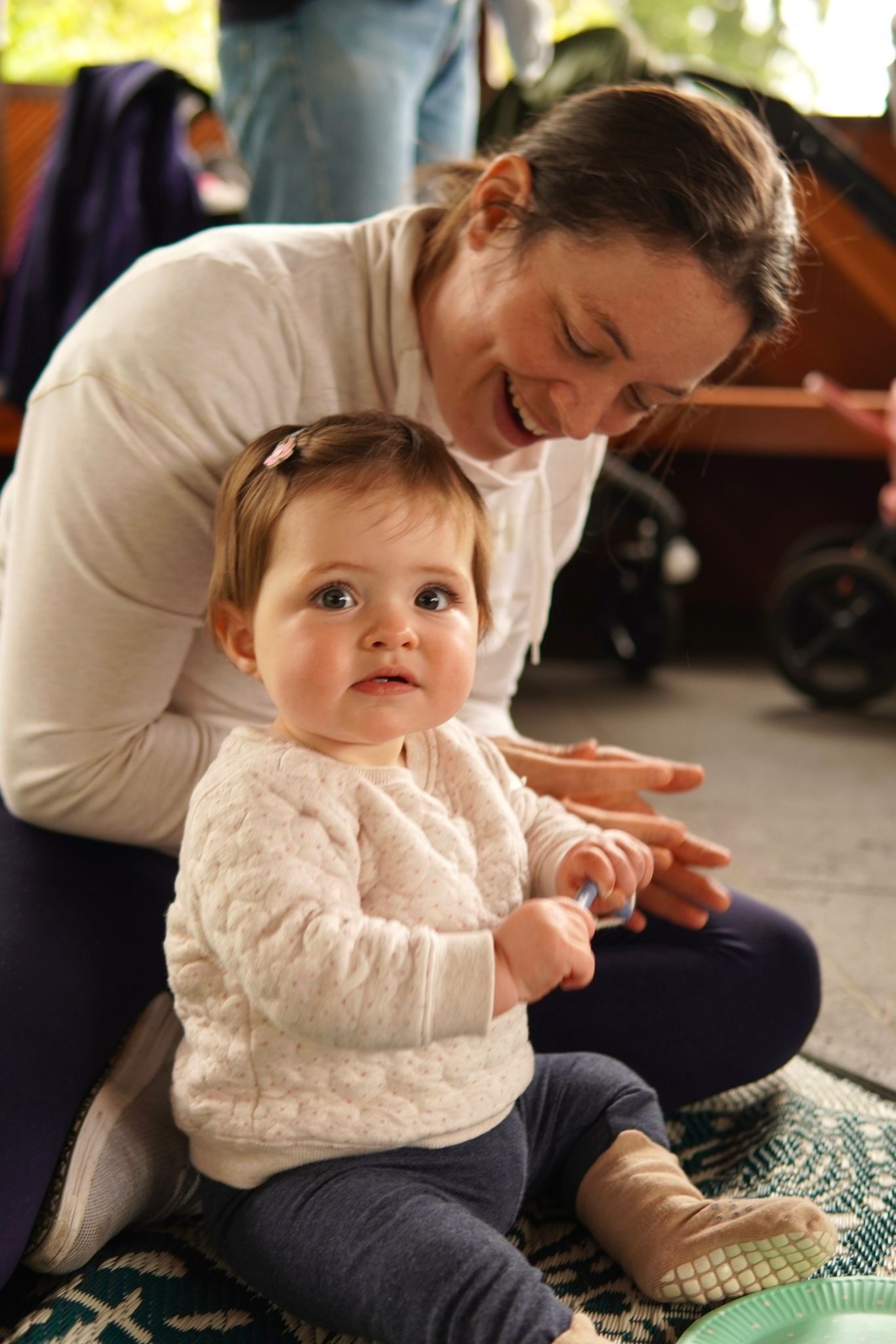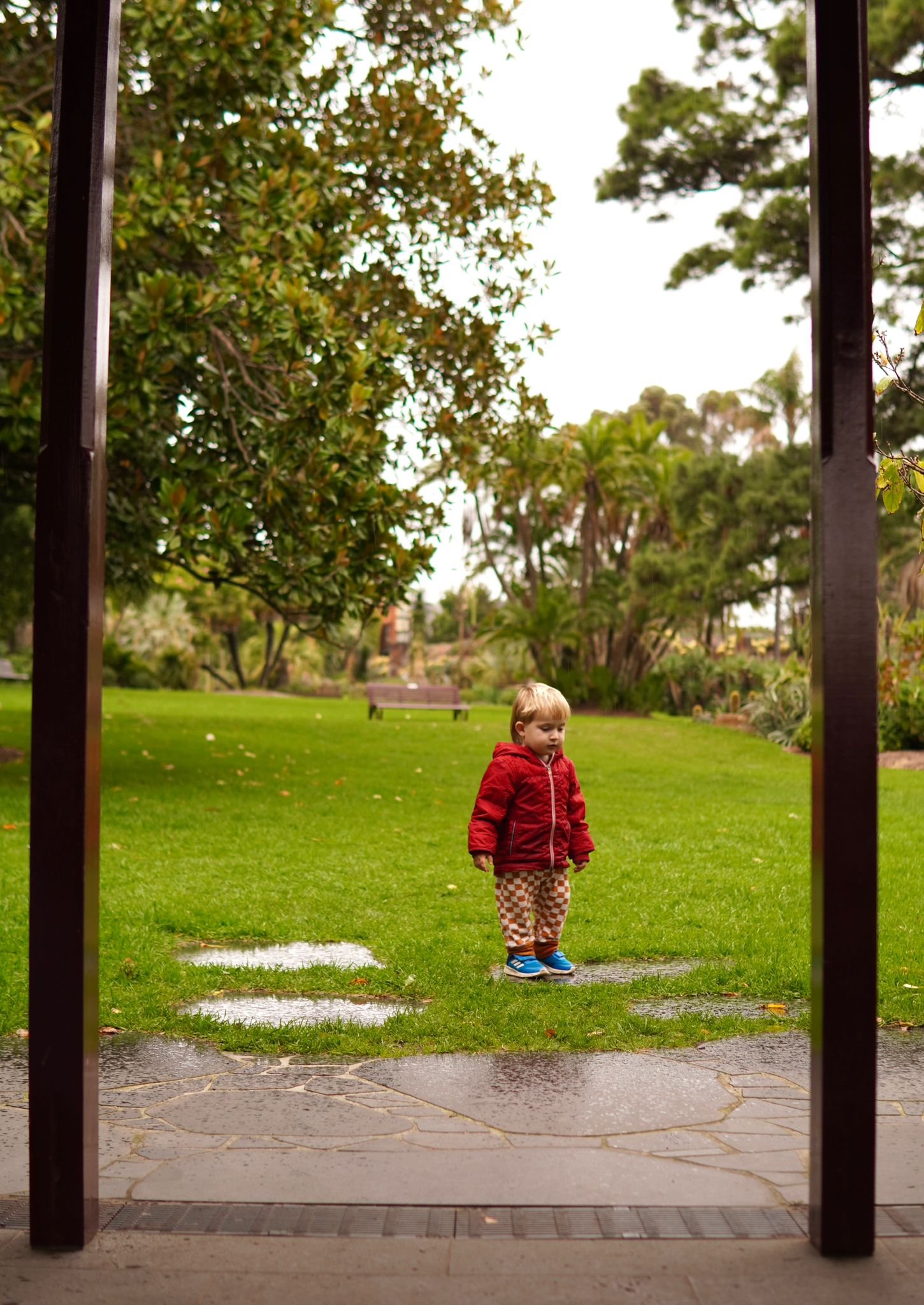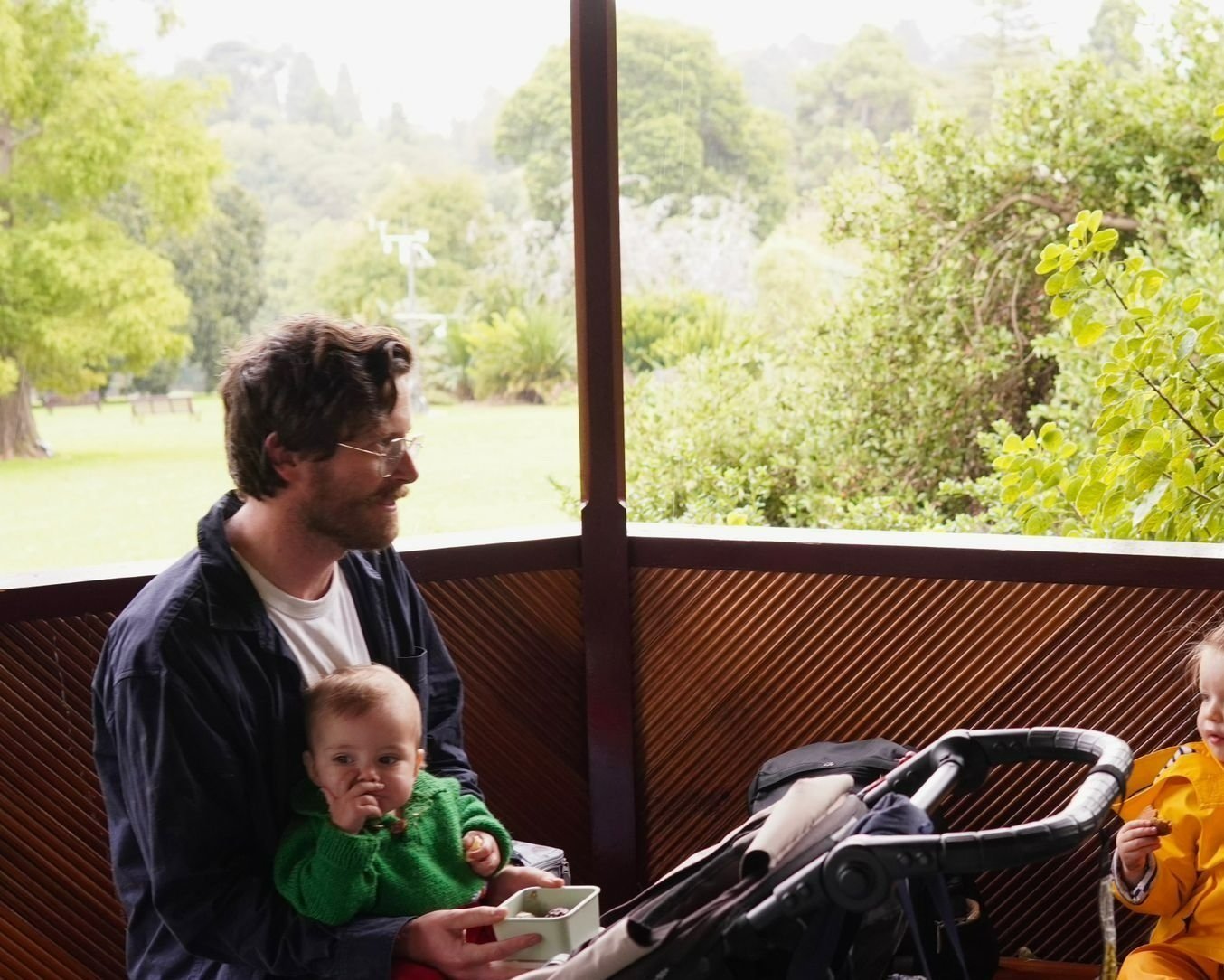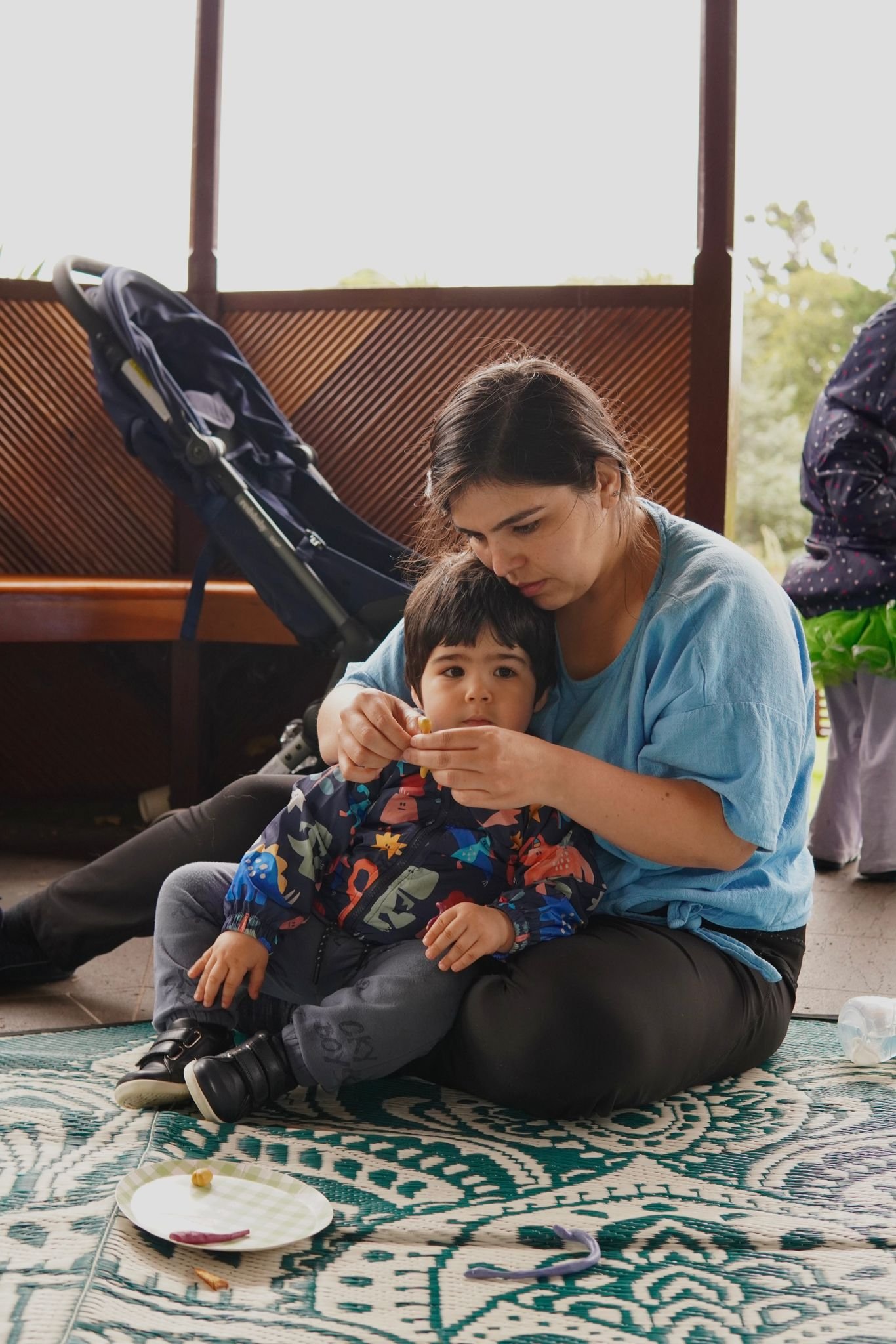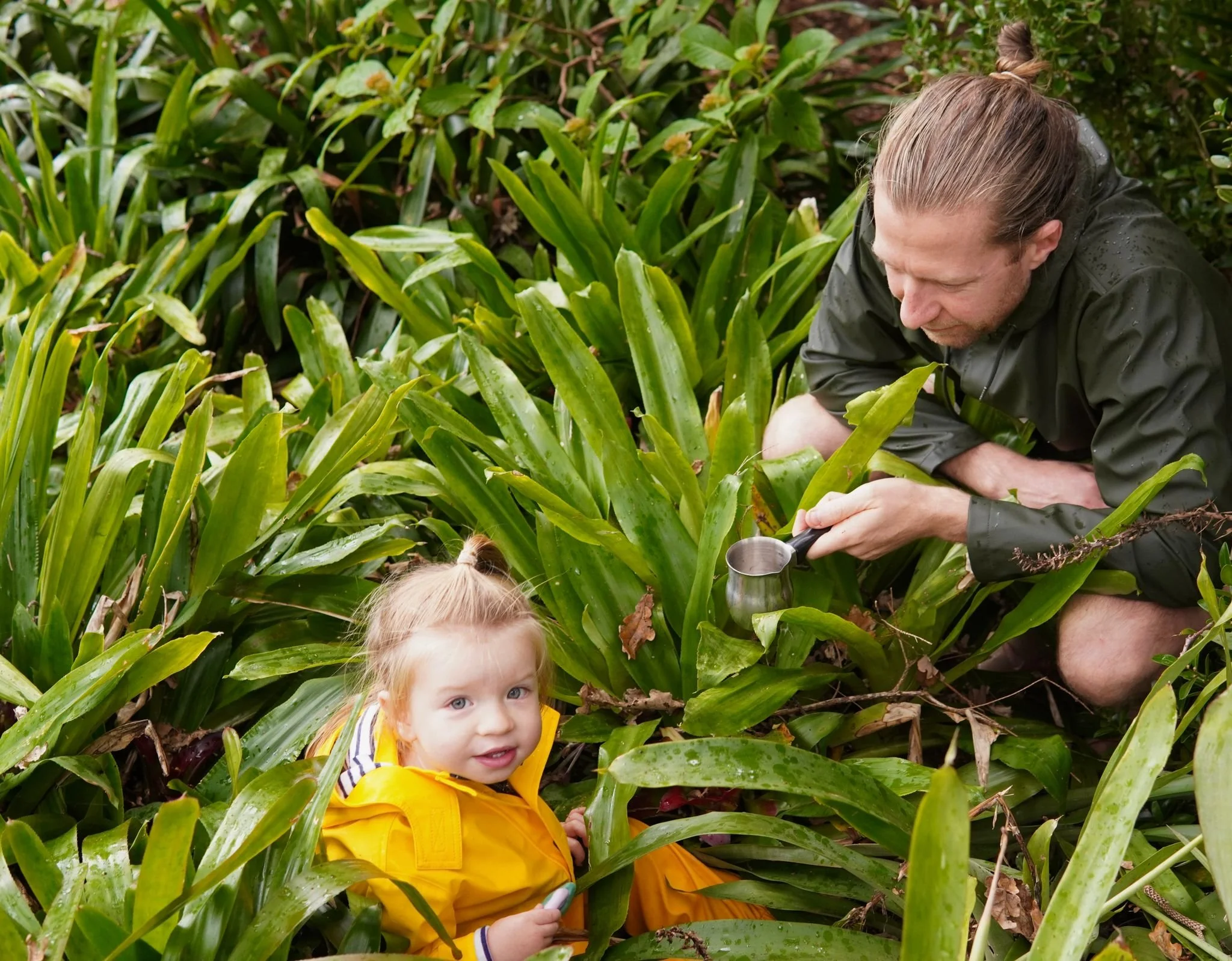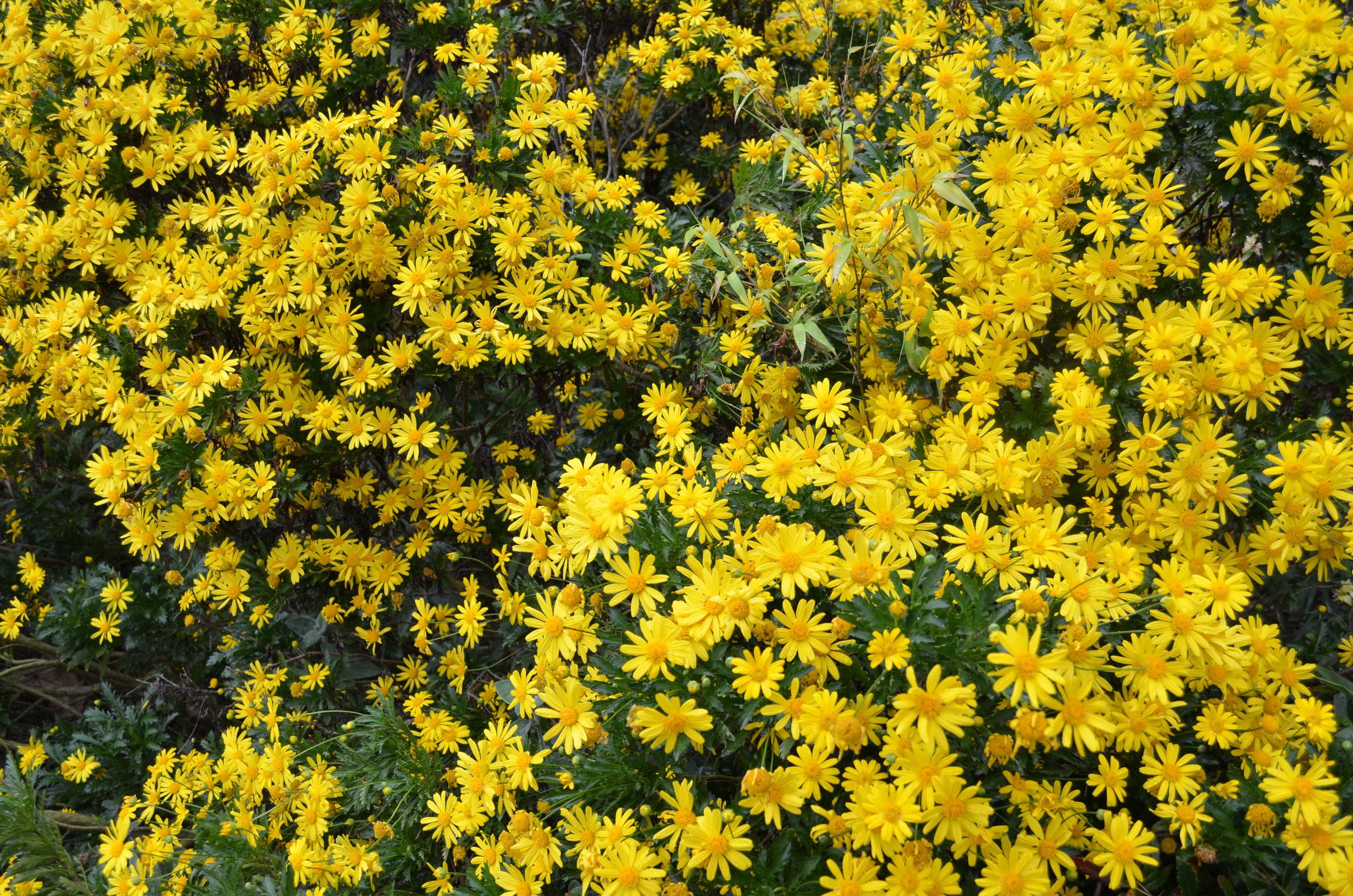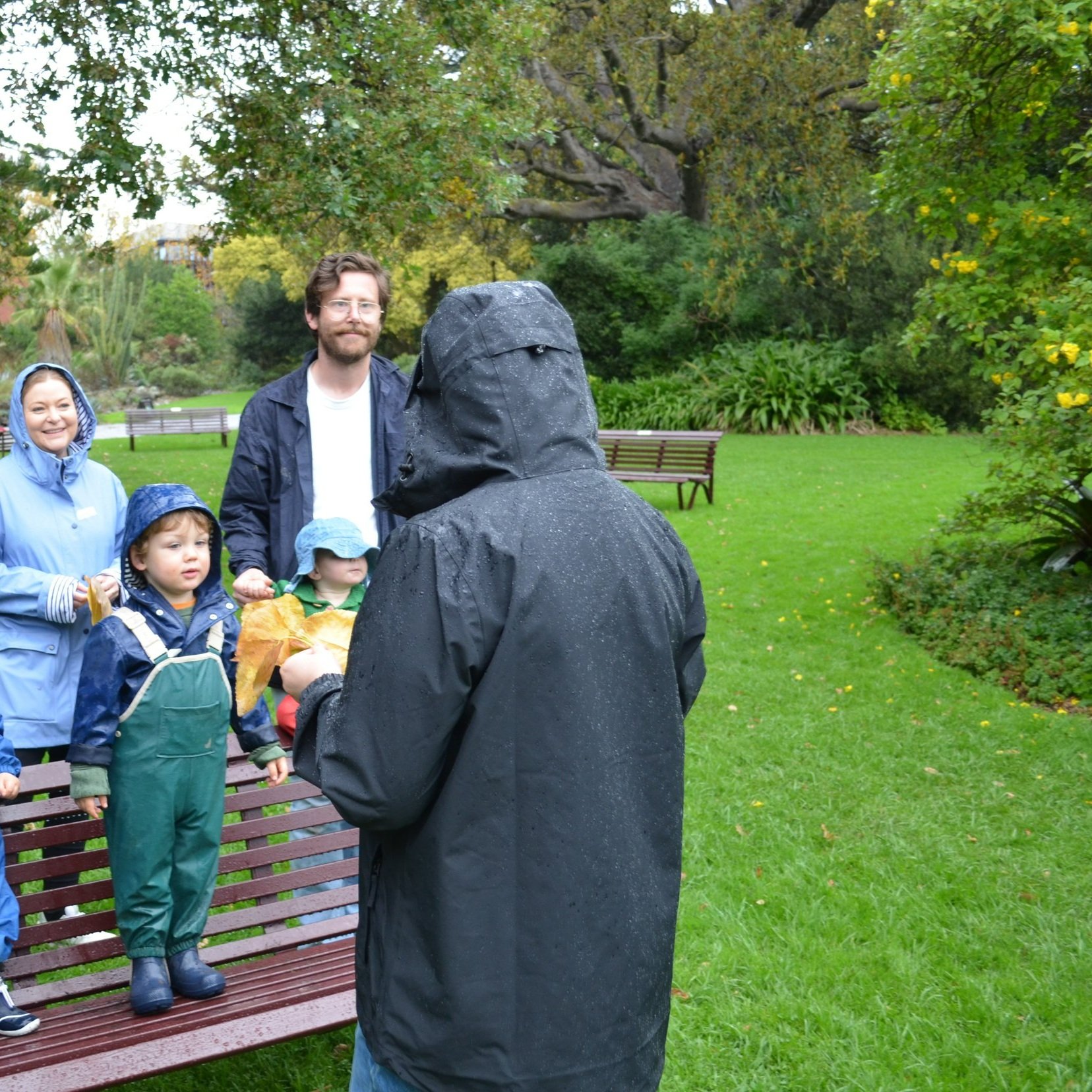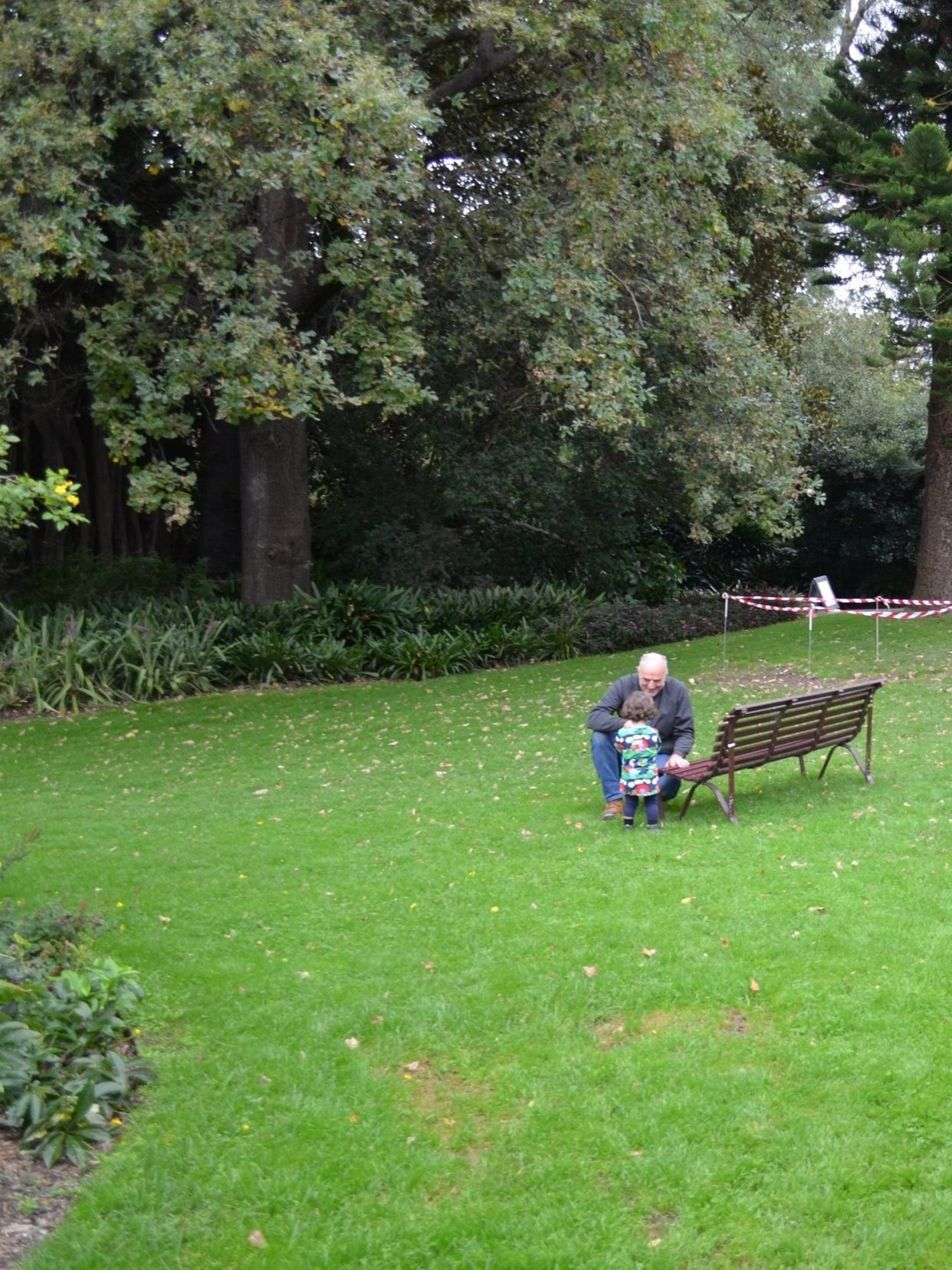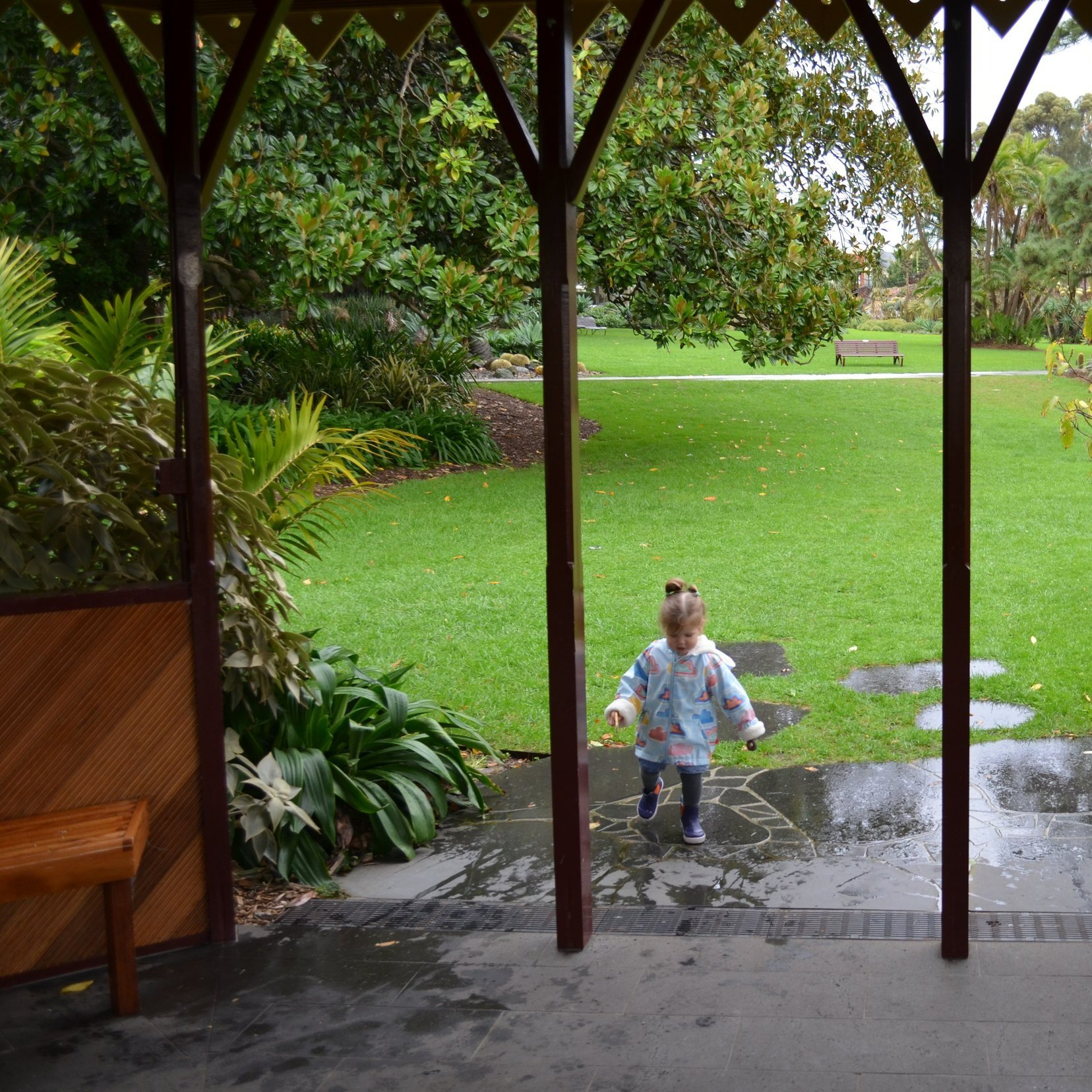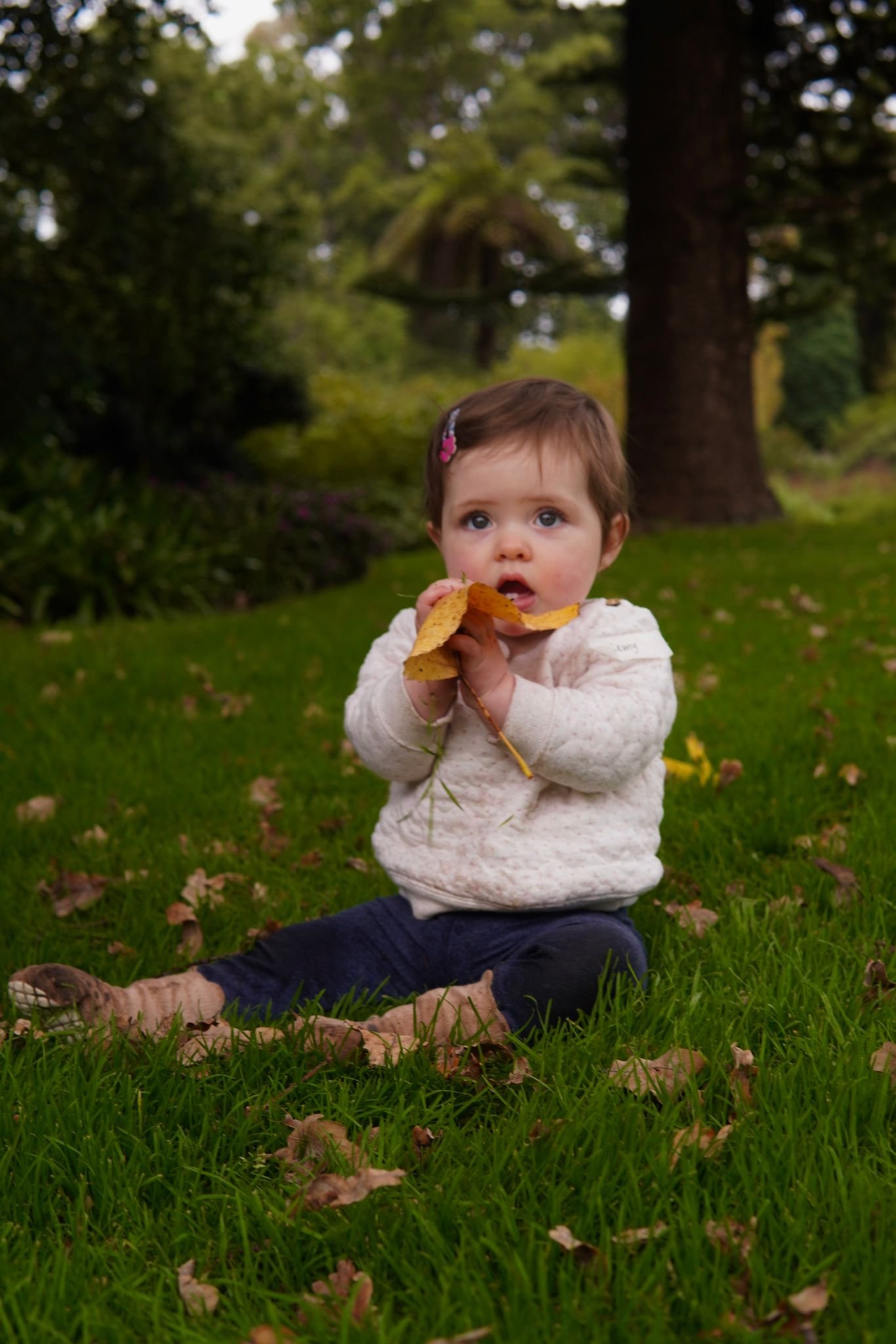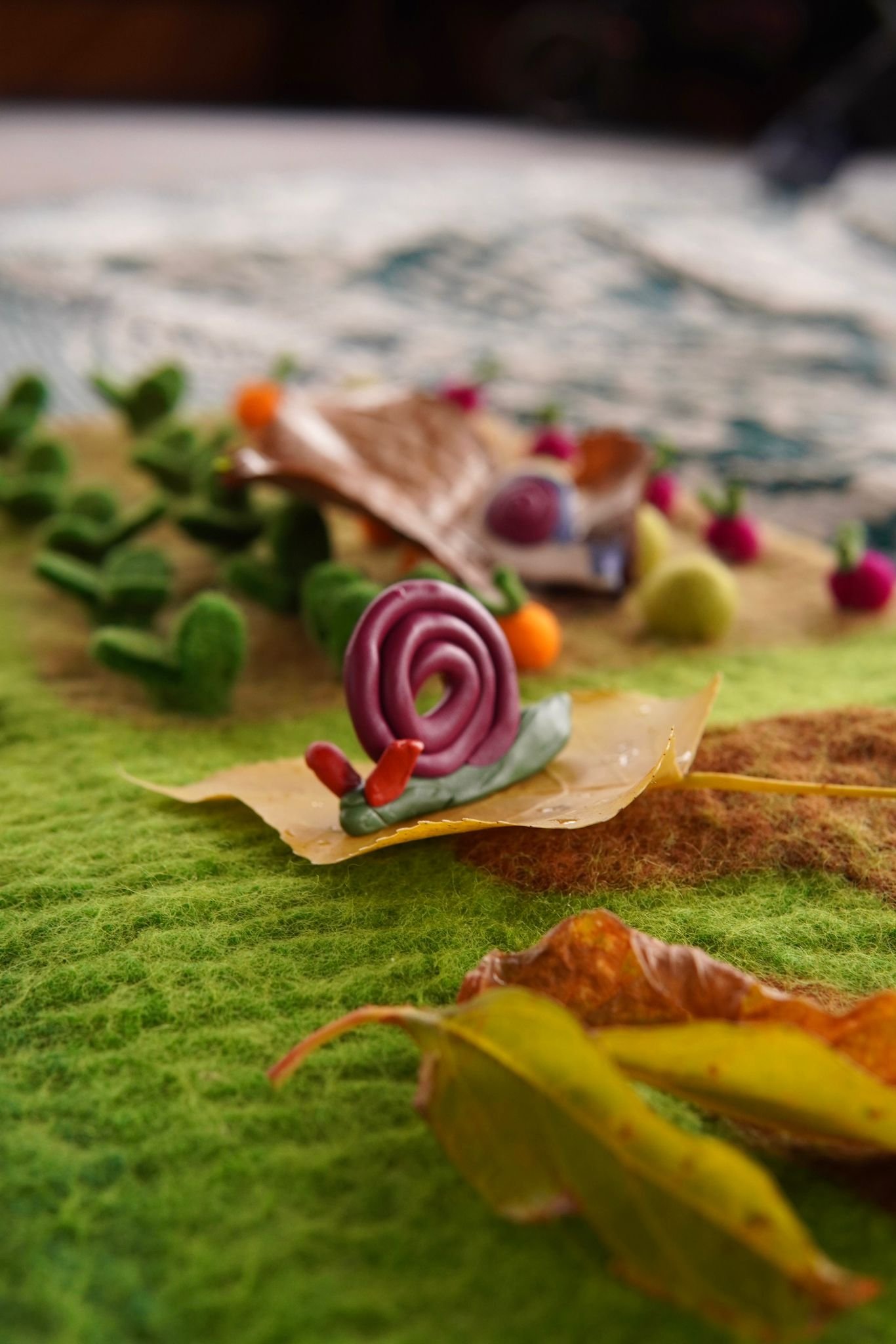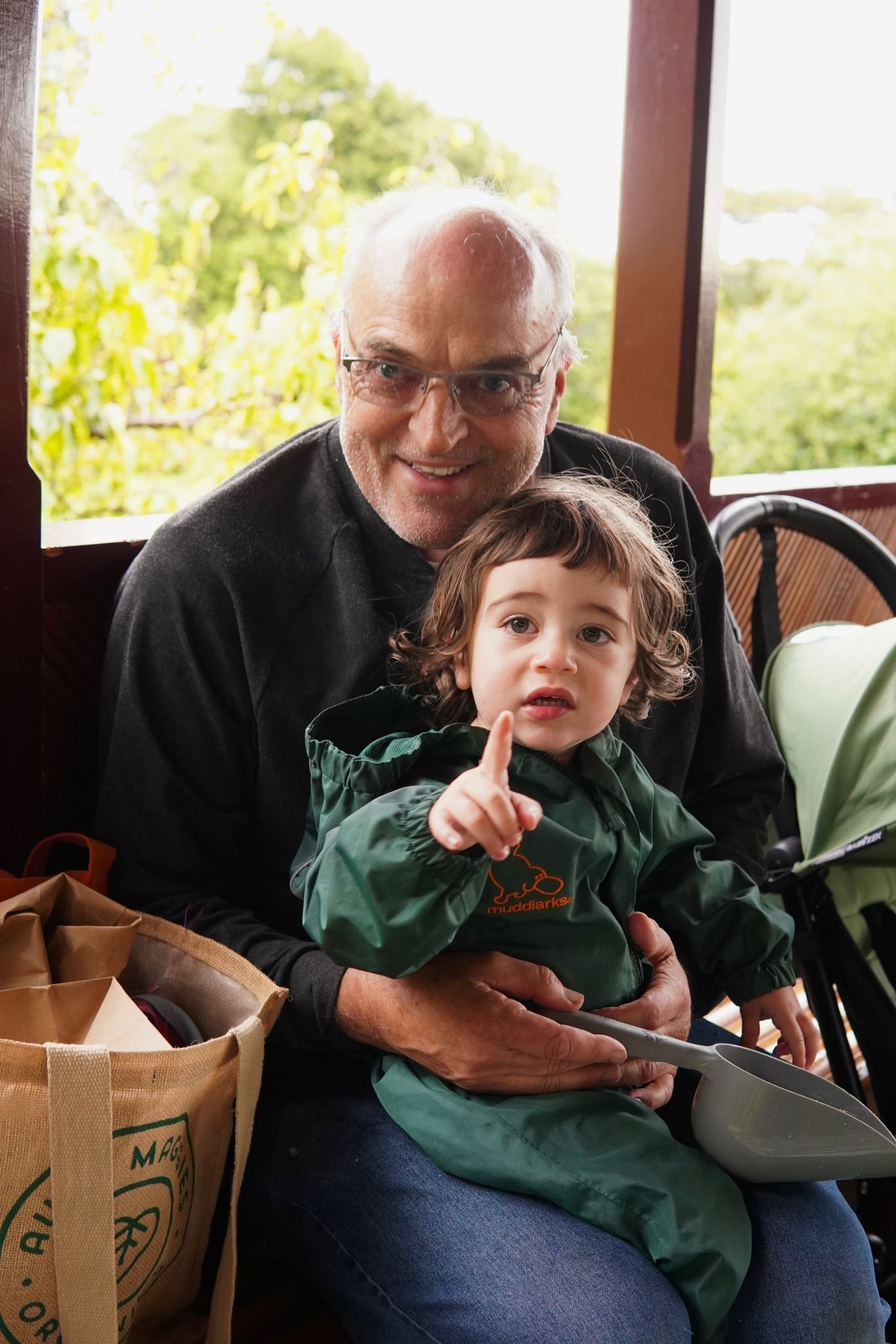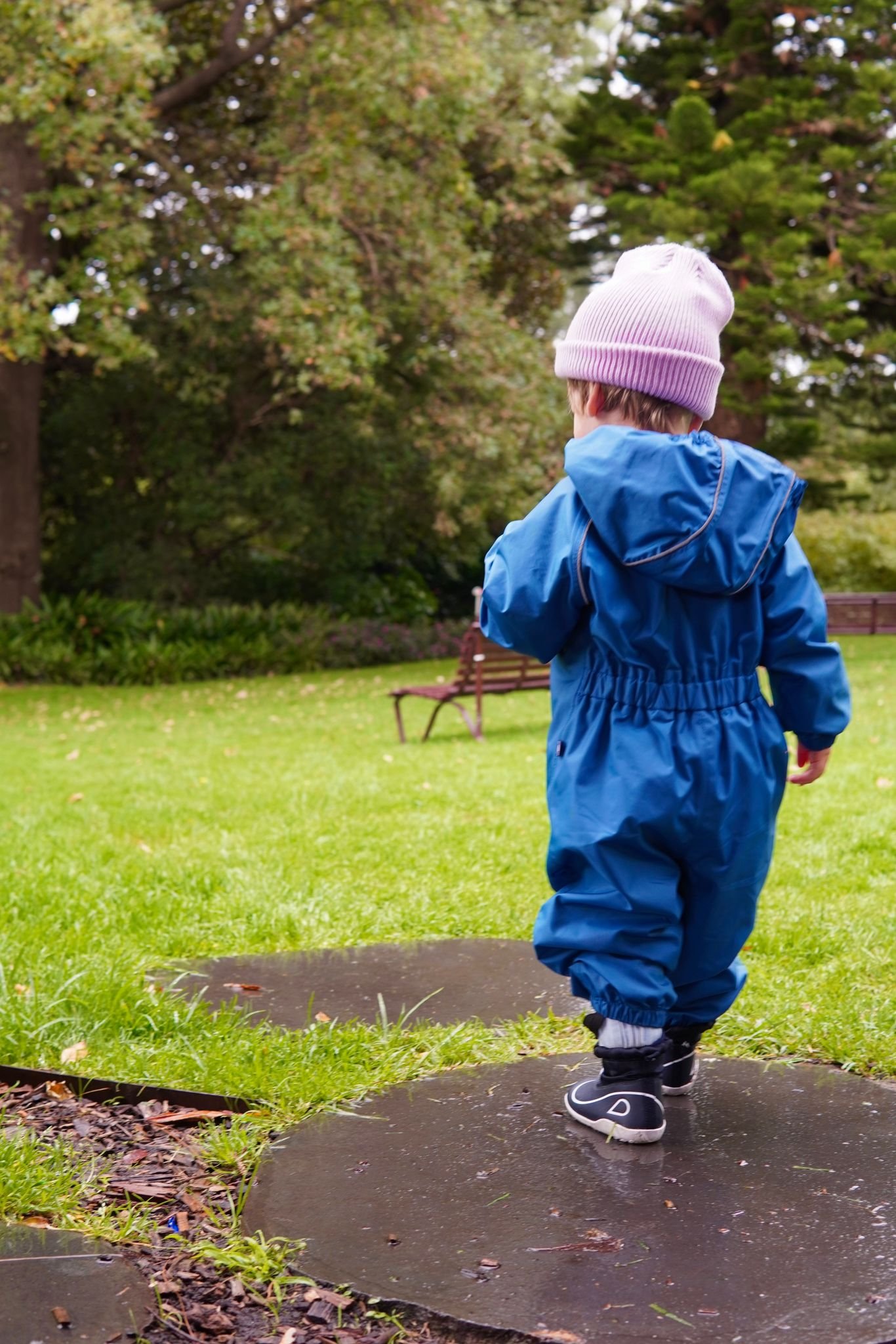biophilia: Cambridge Dictionary Definition
noun
love of living things and nature, which some people believe humans are born with:
biophilia, the inborn affinity human beings have for other forms of life
In a period when we are in a crisis of attention, where technology swallows up great bursts of time, there are two things that often lead us back to being in the moment- children and nature.
Barack Obama, when reminiscing with Bruce Springsteen about first becoming a father in the podcast Renegades, talks about the ‘reacquaintance with wonder’ that his children evoked in him. A wonder for the detail of life- the lines on a leaf, the cloud passing overhead, a unique birdsong. It is something innate, the wonder and curiosity that nature draws from us.
A group of parents and carers in Melbourne seek to return to natural spaces and reacquaint themselves with a sense of wonder and play. Alongside their children and grandchildren, they immerse themselves in the environment, an ever-changing force at the Royal Botanic Gardens. Each week, Every Little Season Playgroup meets at different spot in the grounds.
“When you’re interacting with kids, the idea of slowing down and watching how they become so fascinated with things that we, as adults, trample through everyday- a leaf, a flower- he will spend ten minutes staring at a colour and talking about the colour of it,” said long-time playgroup attendee Kaye as she explores the dewy grounds of the gardens with her son Charlie.
“Little things that they notice- a rock that seems unimportant to us, but they find a rock and they think it’s so good.”
Every Little Season Playgroup endeavours to share in the variety and change of Melbourne’s summers, autumns, winters, springs and in-between. As they have discovered, the abundance of plant life, bug life, bird life and human life make for a rich bounty of play opportunities.
No playgroup session is quite the same, as the weather, sights and stories unearth conversation and connection with the world at large.
“It’s collaborative, joining in with your child, having that moment that’s not- as we were talking about before- rushing to do a million things that you might at home,” said mother Roni, one of the playgroup facilitators.
“It is about being present in the child’s world and in the moment. Our hope is that it’s family centred, doing things outdoors all together, and that people will then replicate this outside of the playgroup setting.”
Roni, a family therapist, and Leanne, a teacher, came together with shared interests. They had lots to talk about at their original playgroup and wanted to create one of their own. They were hankering after a relaxed time, outdoors, to learn and share alongside like-minded parents, with some surrounding themes and activities to make each week interesting and unique. They also wanted the playgroup experience to be fun and as stress-free as possible.
“Being outdoors is inherently quite soothing,” said Roni, looking around at the families.
The morning is sprinkled with a gentle pitter patter of autumn rain. Nobody is too fazed.
“Today it’s raining but that doesn’t matter, that’s why we called ourselves Every Little Season,” said Leanne with a laugh.
“We have been lucky with really beautiful days- but if you weren’t coming to playgroup today, you might stay inside. You know you are meeting up with other people so it motivates you to get up and get going. That is really nice for everyone, too. They know, it’s Thursday, this is what we do, it’s part of our routine.”
Kaye said she was craving something with other adults during the week and wanted a space that allowed her son Charlie to socialise and engage with other kids.
“Honestly, it sounds a bit exaggerated but it’s been life changing- going from not having much, just socialising with a friend here and there- coming together at playgroup has completely changed our week. It’s the highlight of our week. He loves it.”
“We had an event on Monday and when I told Charlie playgroup was on Thursday again he said, ‘PLAYGROUP!’ He’s so jazzed about it as well which is really lovely.”
On the morning that we gather near the pavilion surrounded by burgeoning garden beds and a sweeping emerald green lawn, the first session of the autumn begins with a little introduction: What makes your child unique? The answers highlight why everyone thought an outdoor playgroup was a great outlet for their children who loved to run around, explore, examine and engage with the natural world.
Storytime creates an opportunity to take stock and relax into the morning. On this particular day, the group begins with the storybook, Nice and Slow, by Sarah Ayoub and Mimi Purnell. It was a reminder to slow down, go at your own pace and set your own expectations for the day, rather than being guided by the noise and hurry of the surrounds.
The choice of children’s books often makes choosing just one tricky for Leanne and Roni. The literature endlessly inspires them and leads to enriching activities.
“We love Alison Lester as an author,” said Leanne. “Today we had to find a book that matched with our theme so I was on the hunt but I love doing that. It’s one of my passions.”
The garden inspires them further- the lily pads, the colours, the petals- this all feeds into the fun and learning.
Lots of the parents have spoken about the new vocabulary their children are revealing at home, as they share their stories of wonder at playgroup. “Bamboo” says one. A new range of colours is shared by another.
After storytime, the families use clay to make snails and venture into the gardens to find fallen leaves to add to their creations. The importance of time quickly falls away as the children squelch through the grass, between hanging branches and around scrubs. They naturally embraced the Bear Hunt book notion, ‘We can’t go over it, cant go under it, we’ll have to go through it’. They enjoy going through the light trickle rain and reaching out for the leaves covered in droplets of water, listening for the gardeners car trundling by, waving to him in acknowledgment and breathing in the fresh cool air under the tree canopy.
Little games and imaginings spring up between them and ideas flutter through the air as they inhabit their worlds of play with Mum, Dad or grandpa close behind.
“To see your child now, interacting with other kids and parents- once they go to kinder, it all changes- so we’ve got this really small amount of time to experience things with our child and get to know them in that way, different to at home,” observes Leanne.
“Often we have enquiries such as, ‘Is my child too young to come to playgroup?’ ‘No, you’re not too young,’ we say! As soon as they’re born they can come to playgroup. They are going to get lots out of it even if they can’t make the snail, they’re still here for the experiences: being outdoors, meeting other people, the list goes on and on. It's so important-we are here with them.”
It is a shared experience that extends a branch of offering, for both young and older.
Children are very good at intuiting our feelings and here, there is a sense that Dad, Mum, grandma and pop are relaxed. There is a familiarity and gentleness. The option to chat or simply be. To chase a toddler on a mission downhill, or plonk down and feed someone who is ready for something to eat. There is an understanding and no walls prevent anyone from staying put. With that, there is freedom.
“Everyone is working and rushing all the time. Like we were talking about this morning, kids make you slow down, if you let them,” said Kaye.
Not only do we rely on nature for our survival, but there is also a connection far exceeding the Chop Wood, Carry Water philosophy. Nature helps our minds to build meaning, to generate ideas, to invent, to gather perspective. In an era when some doctors are prescribing ‘outside time’ and ‘forest bathing’ to restore and calm, nature and science continue to show how deeply interwoven into our psyche outdoor spaces are- how we feel, how we express ourselves, how we find peace and calm. A form of biophilia. An innate link to nature. For children, this is more important than ever.
Article by Sinead Halliday
Photography by Kaye Henry (@kayehenryphotography) and Sinead Halliday


